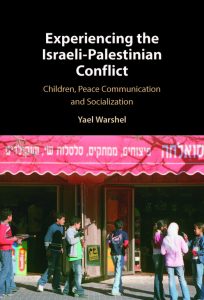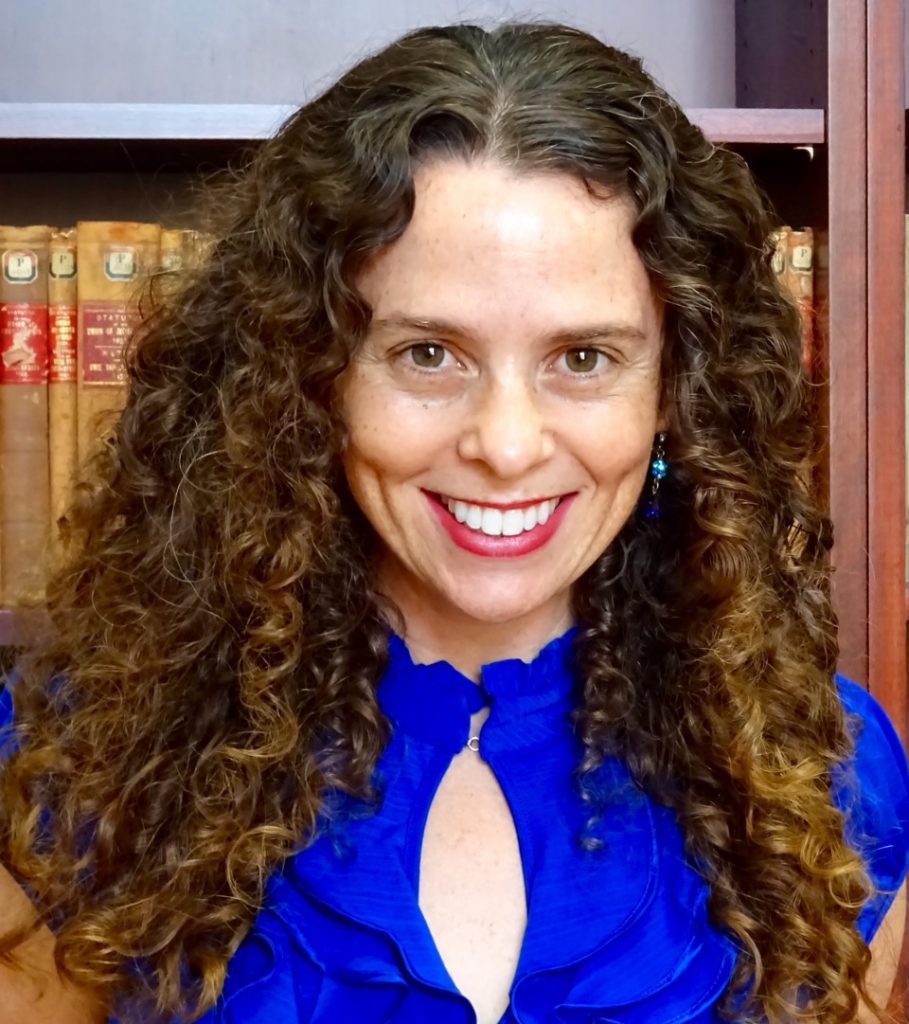Modules on international communication and ‘peace comm’ win teaching award
UNIVERSITY PARK, Pa. — Educational modules developed by Penn State faculty member Yael Warshel received a teaching award from the Association for Education in Journalism and Mass Communication. The modules guide graduate students in an exploration of how communication fosters intra- and inter-group dynamics and identity formation and maintenance. The modules also cover the differences between individual-level prejudice and group-level inequality. Such inequality and grievances surrounding it cause political, especially, ethnopolitical group conflicts.
Warshel is assistant professor of telecommunications and media industries at the Donald P. Bellisario College of Communications. Much of the lessons date back over 15 years ago when she first conceived of and started teaching courses about “peace communication” to undergraduates.
“The ideas [for these modules] stem from trying to educate future scholars to be able to produce the evidence that practitioners need to improve [peace communication] efforts,” Warshel said. That is the goal of peace communication or “peace comm,” to determine whether designed communication interventions — from interpersonal to mass media — can have an impact on managing armed political conflicts.
“Whether it is created locally, externally, organically by professionals, citizens, activists or practitioners,” Warshel said, “the research helps determine whether peace communication interventions make meaningful sense.” If they don’t, Warshel added, the research, namely, assessment and evaluation, also helps reveal paths to improvement.
These modules reveal for students the background they will require “to critically and empirically assess and evaluate the efficacy of a peace communication intervention, like understanding the root causes underlying a political conflict, and how mundane interpersonal communication processes mediate and moderate grievances surrounding those causes.”
The modules are titled “Teaching Empathy and World System Categories as Methodologies for Critical International Communication Research,” and they received a third-place teaching award from AEJMC’s International Communication Division.
Research from Warshel’s 2021 book with Cambridge University Press, “Experiencing the Israeli Palestinian Conflict: Children Peace, Communication and Socialization,” is also featured in the modules. In the book, with its focus on comparing international conflict cases, she writes about how to use world system categories to compare “groupings” around the world and the level of power, or access to resources, they hold.
Using these categories to draw comparisons, as opposed to comparing so-called groups directly, she explains, is crucial for conducting effective critical international communication research. Developing comparative categorical and empathetic based understandings of local histories and group experiences is essential. Theories and causality, she says, are what needs to be studied, not individual national cases in isolation. The latter confounds deeper understandings. A review of her book underlines the contributions of this approach.
In the review, Ned Lazarus, George Washington University and former Middle East program director for Seeds of Peace in Jerusalem, acknowledges the challenges of describing a conflict without reinforcing its “polarizing narratives.” He writes that Warshel overcomes this challenge and “is able to authentically and emphatically portray” the perspectives and experiences of all ethnopolitical groupings party to the conflict. Her efforts, illustrating the range of structural violence, physical violence, threat, and/or trauma asymmetrically experienced, creating a “classic ‘double-minority’ dynamic, in which all groups feel outnumbered, threatened, and aggrieved, none without reason,” make the book a “resounding success.” The “remarkable study” “should move even jaded scholars of ethno-nationalism and disillusioned veterans of Middle East peace advocacy.”
The modules are relevant for students studying international communication, international affairs and peace and conflict studies. Warshel said the comparative lessons also pertain more broadly to U.S.-focused antiracism, and diversity, equity and inclusion education.
While the practice of peace communication is roughly 80 years old, evaluating the effectiveness of interventions or campaigns became more common at the turn of the 21st century.
“I was really drawn to how [campaigns and interventions] work,” she said. “Why are donors pouring money into efforts that could be a waste of money? They might not be impactful and, worse, could be creating more harm than good.
She said that if the interventions are well designed, they may bring about meaningful change to political, economic, social and/or military structures, any of which may be the underlying source for a political conflict.
Warshel is also a research associate with the Rock Ethics Institute and affiliated faculty of international affairs, international and comparative education, African studies, and Middle Eastern studies. She is also the founding director of the Children, Media and Conflict Zones Lab.
AEJMC is a nonprofit organization of more than 3,700 educators, students and practitioners from around the globe. Its mission is to promote the highest possible standards for journalism and mass communication education, to encourage the widest possible range of communication research, to encourage the implementation of a multi-cultural society in the classroom and curriculum, and to defend and maintain freedom of communication, in an effort to achieve better professional practice, a better informed public and wider human understanding.

